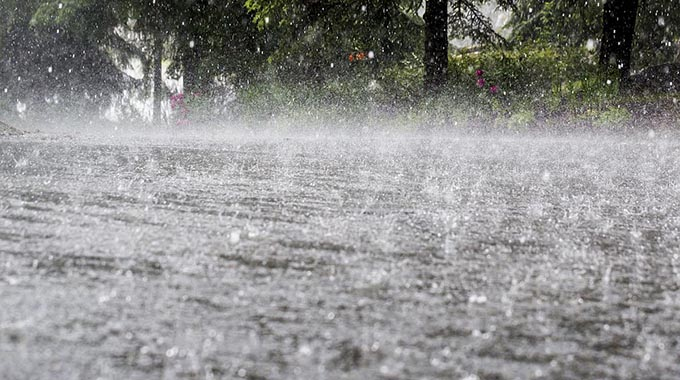
FOLLOWING the Meteorological Services Department’s (MSD) recent announcement that the current wet spell is set to stretch from December 26, 2023 to January 1, 2024, Government has urged farmers to wrap up their planting activities but avoid doing so during flash floods, which can seriously affect germination and emergence.
Lands, Agriculture, Fisheries, Water and Rural Development permanent secretary Professor Obert Jiri said farmers must utilise the current moisture to expedite and complete their operations.
“Soils are already saturated in most parts of the country and rivers are full/near full in some areas, hence there is high likelihood of flash flooding and riverine flooding from the rainfall being expected,” he said.
He challenged farmers who planted early to do proper fertiliser applications and weeding.
“Do not apply top dressing until water levels subside. Farmers should either use slashers on tall weeds or hand-pull them out rather than use hoes, as this adversely affects soil structure,” he added.
He encouraged farmers to take precautionary measures by avoiding working in open fields, as they can become victims of lightning adding that they should move their cattle to higher grounds in the event of flash floods.
The MSD recently issued a weather forecast indicating that the period from December 26, 2023, to January 1, 2024, would be characterised by extreme weather conditions.
According to the forecast, a cloud band originating from the western provinces and moisture from the Inter-Tropical Convergence Zone (ITCZ) would converge, resulting in widespread thunderstorms on December 26. These storms were expected to bring heavy downpours, with rainfall exceeding 50 millimetres (mm) in 24 hours in some areas. The possibility of strong winds and hail accompanies the forecast, heightening concerns for potential damage.
The MSD said the situation was expected to escalate further on December 27, with the combination of the cloud band, ITCZ moisture and the influence of a high-pressure system off the southeast coast of Southern Africa.
“This convergence is likely to trigger widespread rainfall throughout the country, with particular emphasis on Mashonaland West, Central, and East provinces. Authorities have issued flood warnings for these regions, as well as other low-lying areas, urging residents to take necessary precautions,” MSD further highlighted.
While rainfall is predicted to persist in all areas on December 28, there will be a decrease in intensity for the western provinces. However, the Mashonaland provinces, Harare Metropolitan, and northern parts of Manicaland provinces are expected to experience continued heavy downpours, with the potential for rainfall exceeding 50mm in 24 hours.
As the extreme weather system progresses, scattered light thunderstorms are anticipated on December 29 and December 30. On December 31 and January 1, rainfall activity is expected to be lighter, primarily confined to the Mashonaland and northern areas of Manicaland provinces
The heavy rains, while providing the much-needed moisture for crops, have also saturated the soil with excessive moisture posing a risk of seed rot, which further worsens the situation.
MSD has appealed to farmers to protect their crops against severe weather events such as hailstorms by taking appropriate measures including insurance coverage
Herald




